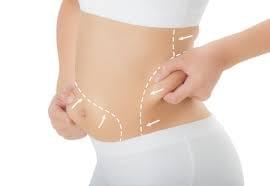1. Introduction
In today's world, many individuals strive to achieve their desired weight and body shape. While diet and exercise play crucial roles in weight management, some people may require additional support to achieve their goals. Laser fat reduction is a cutting-edge technology that can aid in targeted fat reduction and body contouring. This article will guide you on how to incorporate Laser Fat Reduction in Saudi Arabia into your diet, ensuring you make the most of this innovative approach to weight loss.

2. Understanding Laser Fat Reduction
Laser fat reduction, also known as laser lipolysis or non-invasive fat reduction, is a cosmetic procedure that uses laser energy to target and shrink fat cells. The laser energy disrupts the fat cell membrane, causing the release of fatty acids. These fatty acids are then naturally eliminated from the body through the lymphatic system. Laser fat reduction is a safe and non-surgical alternative to traditional liposuction, providing targeted fat reduction without the need for incisions or anesthesia.
3. Benefits of Laser Fat Reduction
Incorporating laser fat reduction into your diet can offer several benefits. Firstly, it provides targeted fat reduction, allowing you to address specific problem areas such as the abdomen, thighs, or arms. Secondly, it is a non-invasive procedure, meaning there is minimal downtime and no scarring. Additionally, laser fat reduction can stimulate collagen production, leading to improved skin elasticity and firmness. It is important to note that laser fat reduction is not a substitute for overall weight loss, but rather a complementary treatment for body contouring.
4. Preparing for Laser Fat Reduction
Before undergoing laser fat reduction, it is essential to consult with a qualified healthcare professional. They will assess your suitability for the procedure and provide personalized recommendations. It is crucial to disclose any medical conditions, allergies, or medications you are currently taking. Additionally, your healthcare provider will provide instructions on pre-procedure preparations, such as avoiding blood-thinning medications and abstaining from eating or drinking for a certain period before the treatment.
5. Incorporating Laser Fat Reduction into Your Diet
While laser fat reduction primarily focuses on targeted fat reduction through the use of laser technology, incorporating it into a holistic approach that includes a healthy diet can enhance its effectiveness. Here are some tips to help you integrate laser fat reduction into your diet:
H1: Choose Nutrient-Dense Foods
Focus on consuming nutrient-dense foods such as fruits, vegetables, whole grains, lean proteins, and healthy fats. These foods provide essential vitamins, minerals, and antioxidants that support overall health and well-being.
H2: Practice Portion Control
Be mindful of portion sizes to avoid overeating. Use smaller plates and bowls to help control portions visually. Listen to your body's hunger and fullness cues to ensure you eat in moderation.
H2: Stay Hydrated
Hydration is crucial for overall health and can also aid in weight management. Drink an adequate amount of water throughout the day to support your body's functions and help control your appetite.
H2: Limit Processed Foods and Sugary Beverages
Processed foods and sugary beverages are often high in calories, unhealthy fats, and added sugars. Minimize their consumption and opt for whole, unprocessed foods instead.
H2: Incorporate Lean Proteins
Include lean proteins such as skinless chicken, fish, tofu, and legumes in your meals. Proteins help promote satiety, preserve muscle mass, and support healthy weight management.
H2: Practice Mindful Eating
Engage in mindful eating practices by savoring each bite, eating slowly, and paying attention to your body's hunger and fullness signals. This can help prevent overeating and promote a healthy relationship with food.
6. Healthy Eating Habits for Effective Fat Reduction
To optimize the effects of laser fat reduction and maintain a healthy weight, adopting long-term healthy eating habits is crucial. Consider the following tips:
H1: Balanced Meals
Create balanced meals that include a variety of food groups. Aim for a combination of complex carbohydrates, lean proteins, healthy fats, and plenty of fruits and vegetables.
H2: Regular Meal Times
Establish regular meal times to help regulate your metabolism and avoid skipping meals. Consistency in eating patterns can contribute to better digestion and energy levels throughout the day.
H2: Mindful Snacking
Choose nutritious snacks such as fresh fruits, raw nuts, or Greek yogurt. Avoid mindless snacking and opt for healthier alternatives when cravings strike.
H2: Cooking Methods
Opt for healthier cooking methods such as baking, grilling, steaming, or sautéing instead of frying. This reduces the added calories and unhealthy fats associated with deep-frying.
H2: Meal Preparation
Plan and prepare your meals in advance to ensure you have healthy options readily available. This can help prevent impulsive food choices and support your weight management goals.
7. The Role of Exercise in Laser Fat Reduction
While laser fat reduction can assist in targeted fat reduction, incorporating regular exercise into your routine is essential for overall health and sustainable weight management. Exercise helps burn calories, increase metabolism, build muscle mass, and enhance the effects of laser fat reduction. Engage in a combination of cardiovascular exercises, strength training, and flexibility exercises to achieve optimal results. Consult with a fitness professional to develop a personalized exercise plan that suits your fitness level and goals.
8. Maintaining Long-Term Results
To maintain the results achieved through laser fat reduction and a healthy diet, it is important to adopt long-term lifestyle changes. Focus on sustainable habits such as regular exercise, portion control, and mindful eating. Avoid falling into restrictive diets or quick-fix solutions, as they often lead to weight cycling and may hinder your progress. Embrace a balanced approach that prioritizes overall health and well-being.
